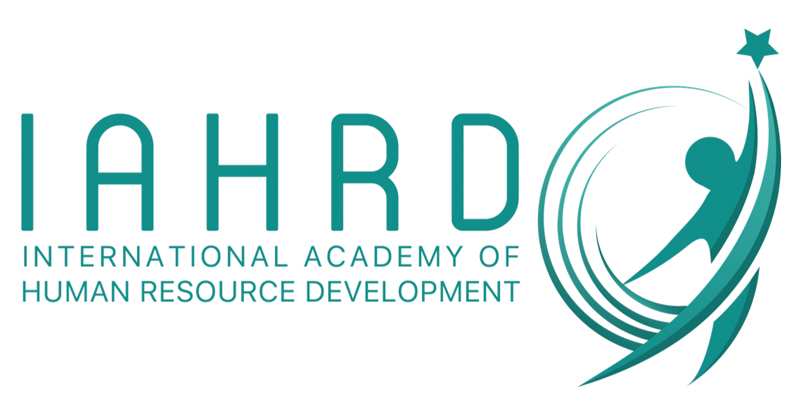
Best Practices in the Field of Enterprise Risk Management
Best Practices in the Field of Enterprise Risk Management
Introduction :
This course is introduced to you by the International Academy of Human Resources Development (IAHRD). Our courses are specially designed to meet your needs, explained to you by experts with a long experience in the field.
ERP has become the main concern of policy makers. They keep looking for the best mechanisms that can assist them in such a significant mission that not most organizations pay attention to. This course will help you determine and understand the factors that are related to ERM and the different stages of its implementations. As Max Gladstone said ' you live in a grim universe, that's risk management for you!'
Objectives:
By the end of the course, participants will be able to:
- Identify internal and external changes that will create risks to the organization
- Understand the relation with the board of directors through governance and improve Risk-Based Decision Making (RBDM)
- Influence internal controls by choosing the response to the risks identified
- Classify risk categories in the organization and identify the right authorities to manage them
- Improve risk management practices within the organization
- Deal with a risk as an opportunity.
Content :
Module 1:
- What do we mean by ERM?
- What is the importance of ERM?
- ERM as a new paradigm.
- The roles of a chief risks officer.
Module 2:
- ERM and policy makers.
- Important factors to consider in ERM.
- Consequences of marginalizing ERM.
Module 3:
- Organizational risk categories.
- Board of directors and Risk-Based Decision Making.
- Appropriate response to different risks.
Module 4:
- Viewing risks as opportunities.
- ERM and the business model.
- Internal controls and ERM.
- Risks by the internal and external changes.
Module 5:
- Getting the ERM process started.
- The stages of ERM.
- Risk management and the organizational culture.
Who should attend?
- Managers and senior managers.
- Directors
- Financial controllers
- Senior accounting and finance personnel.
- Auditors .
- Interested candidates.
times [ Istanbul ]
| from | to | price $ | venue | actions |
|---|---|---|---|---|
| 2025-02-02 | 2025-2-6 | 3,750 | Istanbul | join enquire |
| 2025-02-09 | 2025-2-13 | 3,750 | Istanbul | join enquire |
| 2025-02-16 | 2025-2-20 | 3,750 | Istanbul | join enquire |
| 2025-02-23 | 2025-2-27 | 3,750 | Istanbul | join enquire |
| 2025-03-02 | 2025-3-6 | 3,750 | Istanbul | join enquire |
| 2025-03-09 | 2025-3-13 | 3,750 | Istanbul | join enquire |
| 2025-03-16 | 2025-3-20 | 3,750 | Istanbul | join enquire |
| 2025-03-23 | 2025-3-27 | 3,750 | Istanbul | join enquire |
| 2025-03-30 | 2025-4-3 | 3,750 | Istanbul | join enquire |
| 2025-04-06 | 2025-4-10 | 3,750 | Istanbul | join enquire |
| 2025-04-13 | 2025-4-17 | 3,750 | Istanbul | join enquire |
| 2025-04-20 | 2025-4-24 | 3,750 | Istanbul | join enquire |
| 2025-04-27 | 2025-5-1 | 3,750 | Istanbul | join enquire |
| 2025-05-04 | 2025-5-8 | 3,750 | Istanbul | join enquire |
| 2025-05-11 | 2025-5-15 | 3,750 | Istanbul | join enquire |
| 2025-05-18 | 2025-5-22 | 3,750 | Istanbul | join enquire |
| 2025-05-25 | 2025-5-29 | 3,750 | Istanbul | join enquire |
| 2025-06-01 | 2025-6-5 | 3,750 | Istanbul | join enquire |
| 2025-06-08 | 2025-6-12 | 3,750 | Istanbul | join enquire |
| 2025-06-15 | 2025-6-19 | 3,750 | Istanbul | join enquire |
| 2025-06-22 | 2025-6-26 | 3,750 | Istanbul | join enquire |
| 2025-06-29 | 2025-7-3 | 3,750 | Istanbul | join enquire |
| 2025-07-06 | 2025-7-10 | 3,750 | Istanbul | join enquire |
| 2025-07-13 | 2025-7-17 | 3,750 | Istanbul | join enquire |
| 2025-07-20 | 2025-7-24 | 3,750 | Istanbul | join enquire |
| 2025-07-27 | 2025-7-31 | 3,750 | Istanbul | join enquire |
| 2025-08-03 | 2025-8-7 | 3,750 | Istanbul | join enquire |
| 2025-08-10 | 2025-8-14 | 3,750 | Istanbul | join enquire |
| 2025-08-17 | 2025-8-21 | 3,750 | Istanbul | join enquire |
| 2025-08-24 | 2025-8-28 | 3,750 | Istanbul | join enquire |
| 2025-08-31 | 2025-9-4 | 3,750 | Istanbul | join enquire |
| 2025-09-07 | 2025-9-11 | 3,750 | Istanbul | join enquire |
| 2025-09-14 | 2025-9-18 | 3,750 | Istanbul | join enquire |
| 2025-09-21 | 2025-9-25 | 3,750 | Istanbul | join enquire |
| 2025-09-28 | 2025-10-2 | 3,750 | Istanbul | join enquire |
| 2025-10-05 | 2025-10-9 | 3,750 | Istanbul | join enquire |
| 2025-10-12 | 2025-10-16 | 3,750 | Istanbul | join enquire |
| 2025-10-19 | 2025-10-23 | 3,750 | Istanbul | join enquire |
| 2025-10-26 | 2025-10-30 | 3,750 | Istanbul | join enquire |
| 2025-11-02 | 2025-11-6 | 3,750 | Istanbul | join enquire |
| 2025-11-09 | 2025-11-13 | 3,750 | Istanbul | join enquire |
| 2025-11-16 | 2025-11-20 | 3,750 | Istanbul | join enquire |
| 2025-11-23 | 2025-11-27 | 3,750 | Istanbul | join enquire |
| 2025-11-30 | 2025-12-4 | 3,750 | Istanbul | join enquire |
| 2025-12-07 | 2025-12-11 | 3,750 | Istanbul | join enquire |
| 2025-12-14 | 2025-12-18 | 3,750 | Istanbul | join enquire |
| 2025-12-21 | 2025-12-25 | 3,750 | Istanbul | join enquire |
| 2025-12-28 | 2026-1-1 | 3,750 | Istanbul | join enquire |
